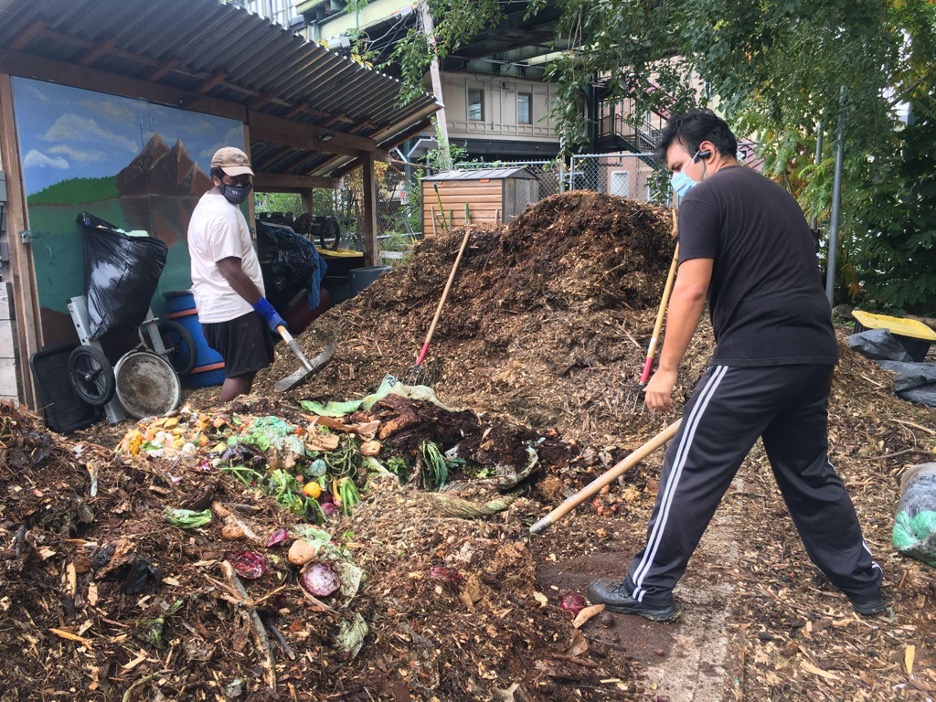BK ROT at work. Photo: Ceci Pineda
Last week, Mayor Eric Adams announced that curbside composting would be city-wide in New York within the next 20 months. This comes as a huge win for the coalition of composters who only months ago were fighting budget cuts to composting in New York City.
That said, the fight for widely-adopted, community based, sustainable composting — which creates good green jobs, keeps compost local, and prioritizes the communities most harmed by New York City’s waste system — is far from over.
One key issue is that participation in the prospective NYC Department of Sanitation program is voluntary, which, in the past, has led to low rates of adoption, unlike mandatory programs, such as recycling. New York City Council’s Zero Waste package and other legislation call for mandatory organics recycling, which will be key to a successful municipal program. Lest we forget, just a year ago, Adams announced that he was halting plans to expand the limited DSNY curbside organics collection service due to low participation.
Organic waste makes up around a third of the city’s residential waste. Community organizations are and have already been filling in the gaps left by the city’s wavering support for composting. With options cut down by the COVID-19 pandemic in 2020, community composters independent of city funding saw an influx of organics (kitchen scraps, yard trimmings, etc.) coming their way. Community composting organizations also address further, intersecting questions: employment in gentrifying areas, traffic pollution, the need for cleaner, greener public spaces and the dignity of waste work. These models are working, and need to be part of the city’s strategy.
A significant missing piece from the planned DSNY curbside composting program is the deep understanding of waste inequity in New York City, and the scars left by historical waste practices in low-income communities of color, which were largely excluded by the previous…
Read the full article here

Leave a Reply